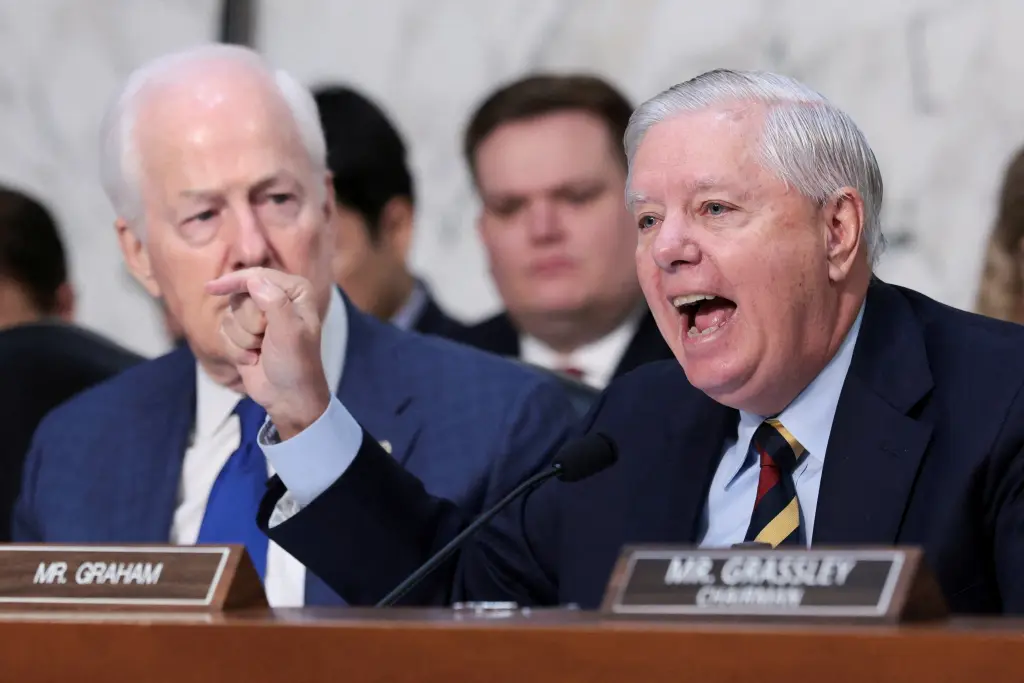Record-Breaking 43-Day Shutdown: Congress Collected Thousands While Federal Workers Went Without Pay
In what will go down as one of the most striking contrasts in U.S. political history, members of Congress continued to receive their full paychecks while hundreds of thousands of federal workers went without compensation during the 43-day shutdown of the U.S. government. On October 1, 2025, the federal government entered a funding lapse when Congress failed to pass a continuing resolution to keep things running. As the impasse dragged on, the economic and personal toll on ordinary workers mounted—but for lawmakers, their salaries marched forward, uninterrupted.

According to data reported by the New York Post, “squabbling lawmakers made $20K each during the longest government shutdown in history.” The total for all members of Congress during the shutdown exceeded $10 million in combined pay. That figure stands in stark relief against the backdrop of delays in pay for civilian federal employees and uncertainty surrounding back-pay guarantees for those furloughed or working without pay.
Under the U.S. Constitution (Article I, Section 6), members of Congress are guaranteed to be paid out of the U.S. Treasury. Unlike many federal employees whose pay depends on current appropriations, congressional salaries are protected by law and don’t stop when a government funding lapse occurs. That protection came into stark view during the shutdown: regular rank-and-file lawmakers, earning an annual salary of about $174,000, received roughly $476 per day during the shutdown. Meanwhile, the Speaker of the House, Mike Johnson (R-La.), earning approximately $223,500 annually, collected more than $26,000 for the shutdown’s duration (about $612 per day).

While congressional pay continued unabated, the consequences for the federal workforce and for American households were much more severe. As of early November, the shutdown had caused at least 670,000 federal employees to be furloughed and roughly 730,000 to continue working without pay. Simultaneously, many millions of citizens depended on government services that were delayed or disrupted—for example, the Supplemental Nutrition Assistance Program (SNAP) payments for November were temporarily suspended, affecting tens of millions of Americans who rely on those benefits. The cost to the economy was estimated at up to $15 billion per week, according to White House estimates.
Throughout the impasse, some lawmakers signaled outrage at the situation and volunteered to forgo or donate their salaries. Among them was Alexandria Ocasio-Cortez (D-N.Y.), who publicly criticized colleagues she said “failed to secure enough concessions on health care subsidies” while agreeing to reopen government. On the other hand, more than half of the 435 House offices did not respond to inquiries about whether they took their paychecks, according to an ABC News survey. The survey found that 242 House offices—over half the chamber—did not respond. In the Senate, at least 55 senators announced they would either not accept paychecks or donate them, but many offices did not report their stance.
The shutdown began as the House of Representatives failed to pass appropriation or continuing resolution bills for the 2026 fiscal year. On November 10 the Senate finally passed a spending bill, and on November 12 the House approved it by a 222-209 vote—with six Democrats breaking from their party to join nearly all Republicans. President Donald Trump signed the bill that evening, officially ending the shutdown after 43 days—the longest ever in U.S. history.

The human story behind these numbers reveals deep consequences. Federal workers, some of whom go days without pay or face uncertainty over back pay, have been forced to rely on credit cards, seek no-interest loans or miss payments on basic bills. At the same time, lawmakers—tasked with preventing such funding crises—continued to draw salaries while engaging in partisan stalemates in Washington. That contrast has sparked anger from unions, federal-employee associations and rank-and-file Americans feeling the pinch. One labor union warned of growing “financial stress” across multiple agencies that had now crossed the 30-day mark without pay.
The optics are stark. A government shutdown is meant to be avoided: agencies should continue functioning, employees paid, and services delivered without interruption. Yet political gridlock left essential services suspended and livelihoods at risk. Meanwhile, the law provided for congressional pay to continue regardless of the shutdown’s severity.
While some lawmakers sought to step into the breach—either through personal gestures or public criticism of the process—many others remained silent. That silence raises questions about accountability, representation and whether those who enact the laws should live by different rules than those who carry them out.

For the millions of Americans whose paychecks were delayed or whose access to services was interrupted, the reality was immediate and harsh. For instance, SNAP benefits either stalled or were cut in half, while agencies such as the Internal Revenue Service and the Environmental Protection Agency announced significant furloughs—some up to 80 % of staff in certain departments. Many of these workers are not in Washington; they’re in cities and towns across America, yet they must wait for Washington to resolve its impasse.
The question lingers: Does the protection of congressional pay during a shutdown help maintain independence and prevent coercion of lawmakers, or does it send a message of detachment and privilege? The legal argument—to preserve the independence of the legislative branch—has merit. But so does the moral reflection: when government comes to a halt and ordinary workers go without, continuing to draw a salary looks like a luxury at odds with public sentiment.
In the wake of this shutdown, there are renewed calls for reform. A bill titled the McCarthy Shutdown Act—originally introduced in 2023—would have prohibited lawmakers from being paid during a government shutdown, though it has not been enacted. The moral argument is clear: if a shutdown demands sacrifice, that sacrifice should be shared. The legal argument is anchored in constitutional protections. The tension between the two will likely continue to animate reform debates in D.C.
As Americans take stock of what this shutdown cost them—not just financially, but in trust, service interruption and personal stress—the image of lawmakers earning full pay while government services defaulted will stay prominent. It will become part of the narrative of this era of dysfunction, and a challenge to anyone in Congress seeking to bridge the gap between governing and representing.
In the coming weeks and months, how Congress addresses this question may mark both a litmus test and a turning point. Will members of Congress revisit the rules that allowed them to be paid while others were not? Will they seek to avoid the next shutdown or change the consequences for lawmakers when funding fails? The answers will matter not only for the next budget fight but for the credibility of the institution itself—and for how the American public judges it going forward.


